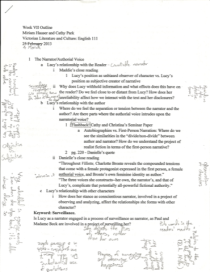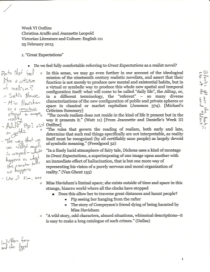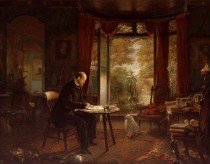
Charles Reade archive visit: framing your research questions
What it would mean to develop an argument about Reade’s research as an autonomous practice, perhaps with an aesthetics or purpose if its own? The Barthes and Ngai may help with theorizing Reade’s research as an important practice of its own separate from his novels.

Charles Reade archive visit: framing your research questions
What it would mean to develop an argument about Reade’s research as an autonomous practice, perhaps with an aesthetics or purpose if its own? The Barthes and Ngai may help with theorizing Reade’s research as an important practice of its own separate from his novels.
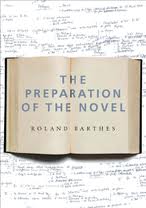
Charles Reade archive visit: theoretical and critical readings
Here’s the promised post framing our readings on Charles Reade, the novel of research, aesthetics of research, and ideas about note-taking in preparation for both our seminar meeting (which will take place during our trip) and our related visit to

Charles Reade archive visit: theoretical and critical readings
Here’s the promised post framing our readings on Charles Reade, the novel of research, aesthetics of research, and ideas about note-taking in preparation for both our seminar meeting (which will take place during our trip) and our related visit to
Week 4
Cathy’s paper: What happens when the narrator in question is supposedly representing the actual story of the author, not ‘fiction?’ Is the authorial intent still relevant in interpreting the work? Reading Oliphant’s autobiography, a reader is presented with numerous instances that seem to question the supposed divide between the author and the narrator or internal evidence versus external evidence.
Week 4
Cathy’s paper: What happens when the narrator in question is supposedly representing the actual story of the author, not ‘fiction?’ Is the authorial intent still relevant in interpreting the work? Reading Oliphant’s autobiography, a reader is presented with numerous instances that seem to question the supposed divide between the author and the narrator or internal evidence versus external evidence.
Week 3
Without even realizing it, we amble like Ursula around campus or in the city, surrounded by sensation (‘reality’) yet caught up in those “castles in the air” which, for Victorian novelists like Trollope and Oliphant, are at once the birthplace and reification of the realist narrative. This concern for the practical effects of realism on our everyday experience and even our identity construction still pervades much of our lives but, like Ursula, we frequently overlook it. The reading of Victorian realist novels can help re-sensitize us to this narrative mode which has become so essential to how we internally negotiate our own experience. (Alison’s Week 3 seminar paper.)
Week 3
Without even realizing it, we amble like Ursula around campus or in the city, surrounded by sensation (‘reality’) yet caught up in those “castles in the air” which, for Victorian novelists like Trollope and Oliphant, are at once the birthplace and reification of the realist narrative. This concern for the practical effects of realism on our everyday experience and even our identity construction still pervades much of our lives but, like Ursula, we frequently overlook it. The reading of Victorian realist novels can help re-sensitize us to this narrative mode which has become so essential to how we internally negotiate our own experience. (Alison’s Week 3 seminar paper.)
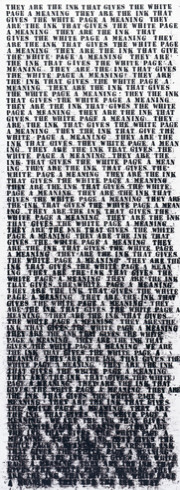
“New Ways of Reading: Histories of Surface Reading” Penn Lecture
Last evening, Sharon Marcus (of Between Women fame), Heather Love, and Steven Best gave their lecture on the history of surface reading and the contemporary state of reading, criticism, and criticism about reading. Their talk touched on many of the

“New Ways of Reading: Histories of Surface Reading” Penn Lecture
Last evening, Sharon Marcus (of Between Women fame), Heather Love, and Steven Best gave their lecture on the history of surface reading and the contemporary state of reading, criticism, and criticism about reading. Their talk touched on many of the
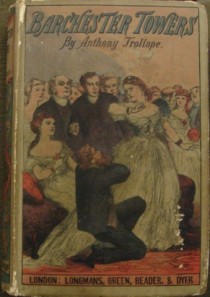
Week 2
“When I read Trollope, it is all I can do not to be bored. All I can do, because Trollope always seems a little bored himself.” (Miller, Chapter 4, p.145)
Anthony Trollope: AN AUTOBIOGRAPHY
Anthony Trollope: AN AUTOBIOGRAPHY
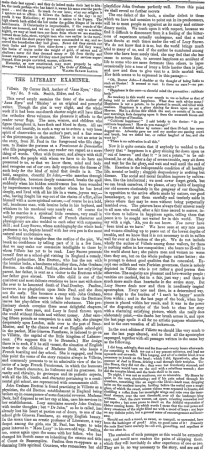
An 1853 review of “Villette”
From The Examiner (London, England), Saturday, February 5, 1853; Issue 2349 An excerpt: “The majority [of the characters] are pleasant and love-worthy people … But Lucy Snowe deals now and then in needlessly tragical apostrophes. … and in the last page of

An 1853 review of “Villette”
From The Examiner (London, England), Saturday, February 5, 1853; Issue 2349 An excerpt: “The majority [of the characters] are pleasant and love-worthy people … But Lucy Snowe deals now and then in needlessly tragical apostrophes. … and in the last page of
